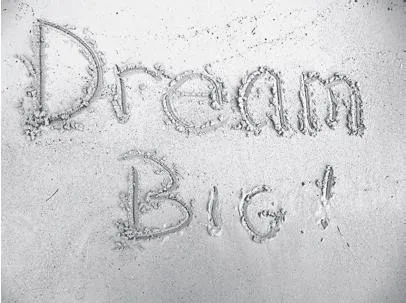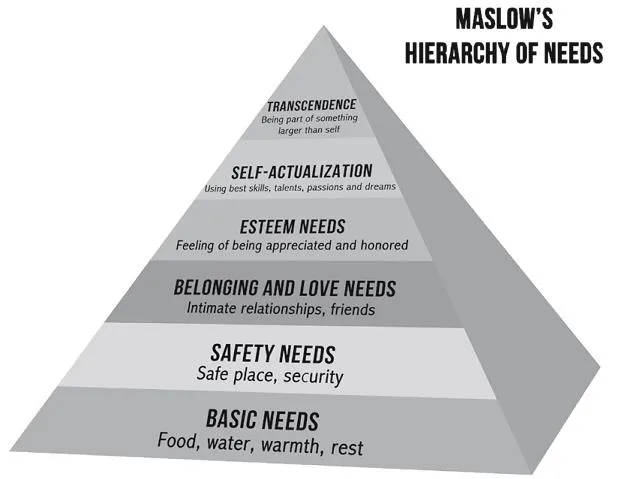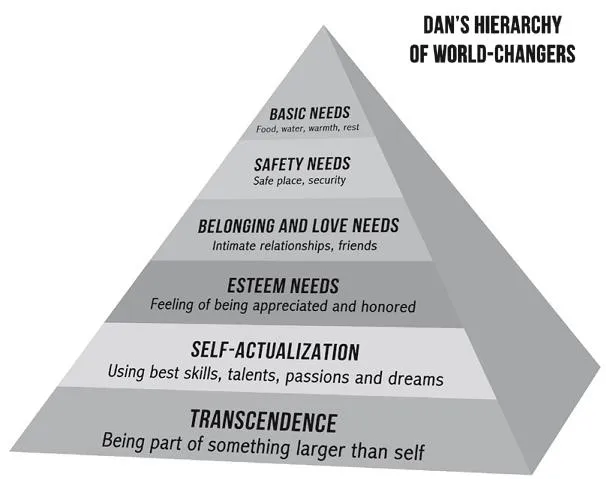
eBook - ePub
Wisdom Meets Passion
Dan Miller, Jared Angaza
This is a test
Buch teilen
- 272 Seiten
- English
- ePUB (handyfreundlich)
- Über iOS und Android verfügbar
eBook - ePub
Wisdom Meets Passion
Dan Miller, Jared Angaza
Angaben zum Buch
Buchvorschau
Inhaltsverzeichnis
Quellenangaben
Über dieses Buch
Today we face a unique dichotomy between the wisdom of the Baby Boomer generation and the passion of Generation Y. According to Wisdom Meets Passion, the question is not which is right, but rather how can the two work together?
Wisdom, meet passion. Passion, wisdom.
By bringing these two voices to the issue, this book takes readers through familiar plights, such as understanding the American Dream, the quest for security, and work that matters—regardless of age. Through candid storytelling, Dan Miller and Jared Angaza uncover various generational approaches to work, money, success, and relationships, proving that it is possible to be both passionate and wise.
.
Häufig gestellte Fragen
Wie kann ich mein Abo kündigen?
Gehe einfach zum Kontobereich in den Einstellungen und klicke auf „Abo kündigen“ – ganz einfach. Nachdem du gekündigt hast, bleibt deine Mitgliedschaft für den verbleibenden Abozeitraum, den du bereits bezahlt hast, aktiv. Mehr Informationen hier.
(Wie) Kann ich Bücher herunterladen?
Derzeit stehen all unsere auf Mobilgeräte reagierenden ePub-Bücher zum Download über die App zur Verfügung. Die meisten unserer PDFs stehen ebenfalls zum Download bereit; wir arbeiten daran, auch die übrigen PDFs zum Download anzubieten, bei denen dies aktuell noch nicht möglich ist. Weitere Informationen hier.
Welcher Unterschied besteht bei den Preisen zwischen den Aboplänen?
Mit beiden Aboplänen erhältst du vollen Zugang zur Bibliothek und allen Funktionen von Perlego. Die einzigen Unterschiede bestehen im Preis und dem Abozeitraum: Mit dem Jahresabo sparst du auf 12 Monate gerechnet im Vergleich zum Monatsabo rund 30 %.
Was ist Perlego?
Wir sind ein Online-Abodienst für Lehrbücher, bei dem du für weniger als den Preis eines einzelnen Buches pro Monat Zugang zu einer ganzen Online-Bibliothek erhältst. Mit über 1 Million Büchern zu über 1.000 verschiedenen Themen haben wir bestimmt alles, was du brauchst! Weitere Informationen hier.
Unterstützt Perlego Text-zu-Sprache?
Achte auf das Symbol zum Vorlesen in deinem nächsten Buch, um zu sehen, ob du es dir auch anhören kannst. Bei diesem Tool wird dir Text laut vorgelesen, wobei der Text beim Vorlesen auch grafisch hervorgehoben wird. Du kannst das Vorlesen jederzeit anhalten, beschleunigen und verlangsamen. Weitere Informationen hier.
Ist Wisdom Meets Passion als Online-PDF/ePub verfügbar?
Ja, du hast Zugang zu Wisdom Meets Passion von Dan Miller, Jared Angaza im PDF- und/oder ePub-Format sowie zu anderen beliebten Büchern aus Betriebswirtschaft & Business allgemein. Aus unserem Katalog stehen dir über 1 Million Bücher zur Verfügung.
Information
Thema
BetriebswirtschaftThema
Business allgemeinCHAPTER ONE
I Just Want to Make
a Difference
I Just Want to Make
a Difference
My earliest recollection of having and acting on a dream happened when I was a ten-year-old farm kid in Ohio. My mom had canned and frozen all the sweet corn needed to provide for our family of seven for the coming year. But I saw the remaining ears of corn in that big garden and those that were continuing to fill out. With Dad’s permission I got up early one morning and began picking those big, juicy ears of corn. I filled the little red trailer I had connected behind our Ford tractor. With the trailer bursting with those ears still covered by the morning dew, I drove the two miles up the dirt road to where it intersected with the paved road that headed into town. I parked so all traffic could easily see me, and I set up my little sign: “Fresh Sweet Corn—$.30 Dozen.” And thus I was introduced to the world of providing a product and expecting a fair exchange of money.
I was captured by the adrenaline rush of running my own business. People loved my sweet corn, and I loved getting their money. That thrill of providing something of value in exchange for a few coins has never diminished. But I realized even then that money by itself has no value—only when the exchange continues does the process of commerce have meaning. And very early on I wanted to do something that made a difference.
Do you remember your childhood dreams? All ten-year-olds know how to dream. You know the typical fantasies. They can dream of becoming a firefighter, astronaut, ship captain, artist, or rock star. But then life happens. Some of those kids were told their dreams were unrealistic. You may have been one of those kids. Somewhere along the way you were taught to be realistic, to stay inside the lines and recognize that growing up means you need to show up at eight o’clock and go home to a dreary existence at five o’clock.
Have you allowed your dreams to be washed away by the big wave called Life? Is it really too late to create a plan of action to bring your dreams to reality? What can you do today to act on a dream that’s been languishing in those precious childlike recesses of your mind?
There are two great days in our lives—the day we are born and the day we discover why.
—WILLIAM BARCLAY1
Can you identify both of those days in your life?
So what are you doing with your dreams? Did the dreams you had two years ago change the life you have today?
The old American Dream defined success as a stable job, a great paycheck with benefits, a house in the suburbs, and a secure retirement plan. With all of those items now in jeopardy, the search has become more philosophical and spiritual. Today I hear people saying, “I just want to do something noble, humanitarian, or socially responsible. I just want to make a difference.”

To dream alone is fantasy if it doesn’t move the heart to act.
—DAN ALLENDER2
Fortunately I was raised in a family that encouraged me to dream big and follow that dream. We were taught that anything is possible. With that belief, I’ve traveled all over the United States and spent the last six years living in East Africa.
I started my first business at thirteen years old. At that point I’d spent my life racing BMX bikes with my father and brother. We were at the top of our game, and we absolutely loved racing. Consequently, I knew a lot about the mechanics of a bike.
So I started my own neighborhood bicycle repair company. I put flyers on mailboxes and offered free pickup and delivery (by foot). Over the course of a summer, I made my first five hundred dollars. I used that to put toward my first car.
I had been enthralled with Africa since I was six years old, directly after seeing the first We Are the World music video hosted by Michael Jackson. My love of Africa grew exponentially from that day.
When I was sixteen, I started studying Mombasa, Kenya. I wanted so badly to be in Africa, where the life is raw and so much of the landscape is untainted by the need for mass consumption. I wanted to live on the Swahili Coast, where the primary concern is fostering relationships and appreciating the earth and the life that God created for us.
People thought my little dream was cute. But I studied, believed, and worked hard for it. Now I’m here, living with my wife and our adopted Rwandan son; our first baby is on the way.
Climbing the Pyramid or Skipping to the Top
Remember the pyramid on the opposite page from your introductory psychology class? Abraham Maslow determined that we can track people through a logical progression from the bottom to the top of the pyramid. People are concerned about their physiological needs first. If someone is hungry, he isn’t concerned about saving the world—that person is going to be looking for something to eat. If someone doesn’t have a safe place to stay, that will be her primary concern. It’s only after basic needs have been taken care of that anyone can climb up to the top of the pyramid—self-actualization or even transcendence, wanting to be part of something that goes beyond himself or herself. But wait a minute. Is that really the way it always happens? Do you know anyone who has seemingly ignored his own needs with a higher desire to help someone else?

Ever heard of Mother Teresa? How about these people?
Maggie Gobran is a Coptic Christian from Egypt, who founded the charity organization Stephen’s Children Ministry in Mokattam, outside Cairo, Egypt. She said, “When I touch a poor child, I’m touching Jesus. When I listen to a poor child, I’m listening to God’s heart for all of humanity.”3
Somaly Mam is a Cambodian author and human rights advocate, focusing primarily on needs of victims of human sex trafficking. She has garnered official and media acclaim for her efforts.4
Nelson Mandela is one of the greatest examples of bucking the concepts that Maslow put forth. Mandela spent twenty-seven years in prison, just to prove a point!
When Jared was a teenager, we, as parents, would make him empty his pockets before going to downtown Nashville with his friends for the evening. We knew whatever he had he would give away before coming home. Not that it would be spent on candy or trinkets for himself. Rather he would give it to people who obviously needed it more than he did. One Christmas I carefully selected a really cool leather jacket I knew he would love. A couple nights later I noticed he came home without it. Upon questioning, Jared simply shared that he saw a guy with no coat. He knew he had several more at home, so why wouldn’t he give it to someone who had none?
Many, especially in the younger generation today, seem to ignore Maslow’s carefully defined pyramid. They ignore their basic needs to move up the pyramid all the way to transcendence (being involved in something that goes beyond the created world). The desire to make a difference is a stronger pull than having another bag of Doritos or even a BMW.

We’ll find this to be an ongoing issue in those who blend passion and wisdom. Regardless of where they are on the chronological timeline, they seem to ignore the natural progression of securing one’s own needs before being drawn into serving others.
So many people in my generation were raised to believe that Maslow’s hierarchy of needs was the only formula for success. While I certainly believe he had some valid points for the masses, I also believe he neglected to incorporate people who govern their lives from a more altruistic foundation.
There are a lot of rules that the Western world has created in order to maintain control and order. Time and money tend to be the premise for most of them. But I view time, money, and dogmatic religion as coping mechanisms created by man. In the short term it’s easier to create hierarchies and controlling mechanisms. However, historically, those systems have never been sustainable, nor do they tend to incite true happiness.
I never really cared about having nice things or even having food on my table. I have always chosen relationships over comfort or material things. Consequently, I’ve lived a life of deep, meaningful relationships. People often comment on the fact that I am still so close to the boys I grew up with. Now that we’re all grown up, we’re still like brothers, and I’ve been friends with most of them for nearly twenty years. They are family that I chose.
Those relationships mean more to me than anything I could ever achieve on my own. I’d rather be hungry with a friend than have a full belly on my own. That will never change.
I don’t remember to whom I gave that jacket, but I do remember giving it away. I remember how I felt after having done it. I’ve carried that feeling with me ever since. It has nothing to do with my comfort levels, money, or the status quo. It has everything to do with true human connection. It can’t be bought, traded, or leveraged. It’s as pure as you get.
To each there comes in their lifetime a special moment...